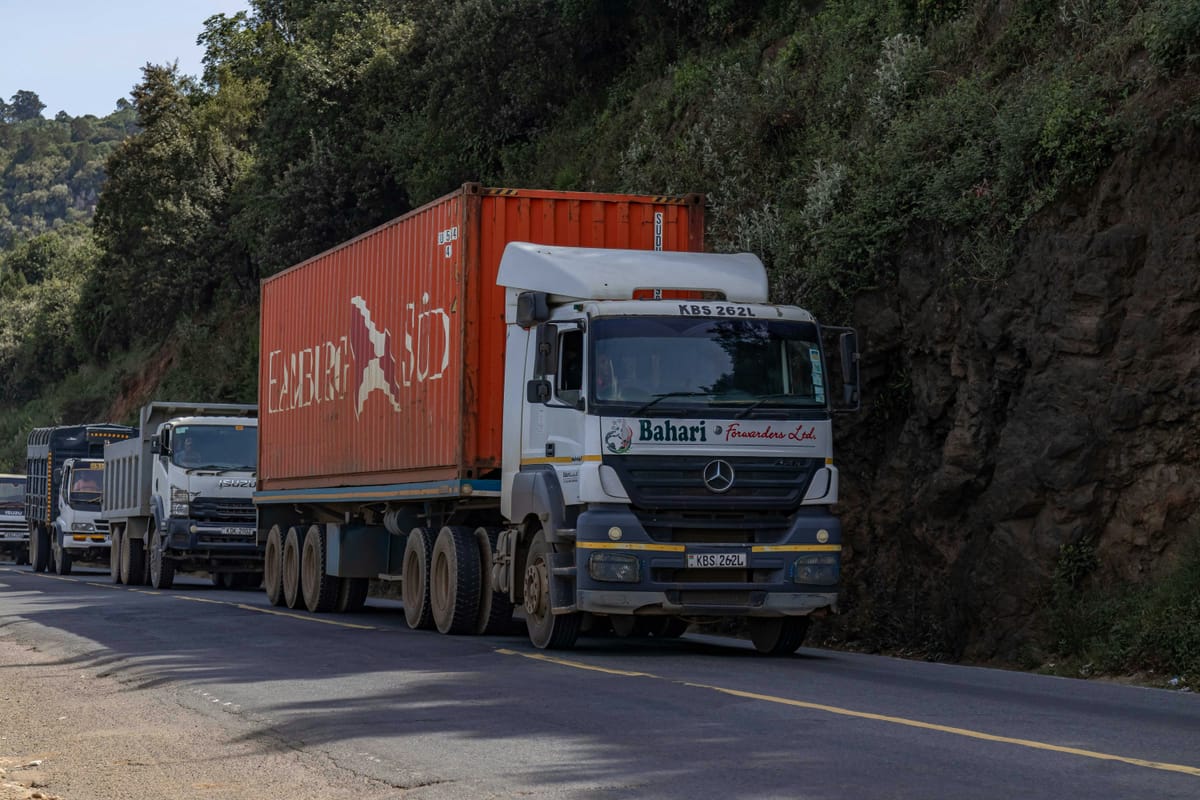Logistics That Don’t Break the Hustle

It sounds absurd, but it’s true: shipping a 20-foot container from China to Nigeria (a journey of nearly 13,000 km) can cost as little as $1,150. That works out to about $0.09 per kilometre.
Now compare that to moving the same container from Apapa Port in Lagos to Jos, roughly 850 km inland. The average transport cost? Between ₦600,000 and ₦1.6 million (that’s about $700 to $1,900). Even on the low end, that’s $0.82 per kilometre — nearly 9x more expensive per kilometre than crossing an entire ocean.
Let that sink in: It’s cheaper to move a container across the world than across your own country.
This isn’t just a logistics problem. It’s an invisible tax on trade, agriculture, and growth. It’s why imported rice makes it to port but never to rural shops. Why tomatoes rot in the North while prices spike in Lagos. Why a retailer in Ilorin pays double the wholesale cost of goods. Why Nigeria, despite having one of Africa’s largest economies, still has one of the lowest intra-country trade efficiency rates on the continent.
We don’t need drones or hyperloops. We need ground-level logistics infrastructure that works, that respects the hustle, not punishes it.
People should be building:
1. Smart Coordination Platforms for Trucking
There’s a ton of unused capacity on Nigerian roads. Every day, trucks return empty from trips they could’ve monetized. We need platforms — not fancy apps, just low-data marketplaces — that connect shippers with trucks already heading in the right direction. Think “Airbnb for return trips.” Reduce deadhead miles. Cut costs.
2. Inland Consolidation Hubs
Every trader shouldn’t have to build their own chain from Apapa. Set up shared warehousing near inland cities like Jos, Makurdi, or Akure. Let importers ship once to a central hub, then share last-mile logistics with others going the same direction. Charge per pallet, not per container. Cheaper, smarter, faster.
3. SMS-Based Tracking for Peace of Mind
Not everyone has a smartphone, but everyone wants to know where their goods are. A simple SMS-based system where drivers check in at each town (“Left Ibadan, Arrived Ife”) and customers get auto-notified builds trust. No GPS. No expensive tech. Just visibility that helps small businesses sleep at night.
4. Community-Powered Haulage Networks
In every state, there are thousands of trusted, small-time truck drivers; don’t replace them. Organize them. Create micro-franchises. Add basic training, branding, and a reputation system. Build a decentralized network of high-trust, medium-scale haulers who know the terrain.
Here’s what this could look like:
– An importer in Aba pays ₦400k to move goods from Lagos — not ₦1m — by consolidating with three others headed East.
– A textile wholesaler in Jos gets SMS updates on her shipment, so she can prepare her staff and manage customer expectations.
– A truck driver increases his monthly revenue by 30% simply by avoiding empty return trips, thanks to a coordination platform.
– A logistics startup doesn’t need a fleet to scale — just smart partnerships, local insight, and a brand people can trust.
Africa’s informal economy doesn’t move on schedules. It moves on trust.
But that trust is strained every time a truck disappears for two days, every time prices swing wildly, every time a container gets stuck in Apapa because no one can pay ₦1.5m to move it inland.
If we fix logistics, we fix trade. If we fix trade, we fix income. And if we fix income, we fix everything else.
So build something that gets the tomatoes to market. That helps a trader in Jos pay less than an importer in Lagos. That makes logistics feel like a ladder, not a wall.
